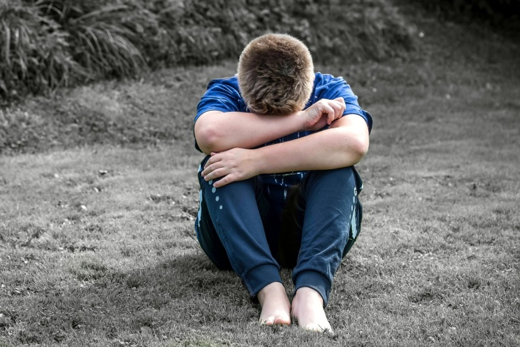What is misophonia retraining therapy? Due to the lack of extensive scientific studies and research, there is still a need to know more about Misophonia. It is a sound sensitivity disorder that refers to intolerance in response to certain sounds, i.e., trigger sounds. There are many cases where Misophonic people lash out at others when hearing misophonic trigger sounds. Misophonia patients can react negatively upon hearing even everyday triggers sounds like someone sniffing or snoring loudly. Their responses include psychological, social, and emotional reactions.

(Source)
Misophonia and Other Disorders
It is common to misunderstand Misophonia for disorders such as tinnitus, OCD, depression, anxiety, and more. This is because the symptoms appear the same and may even correlate (lack of research). Other people might notice these trigger sounds as normal day-to-day noises. However, when it comes to Misophonic patients, they are intolerable to the slightest hint of these sounds. The severity of this condition varies from person to person. Therefore, reactions might not be as extreme in one person as they are in another.
Doctors and scientific researchers believe that there may be a way to cope with this condition through various behavioral and cognitive therapies. Here’s what the retraining therapy (TRT) for Misophonia looks like.
Prognosis of Tinnitus Retraining Therapy for Misophonia
Tinnitus Retraining Therapy is a suitable treatment method to counter and help a patient cope with tinnitus. Tinnitus refers to ringing or buzzing in one or both ears and can be a frequent cause of the disturbance. However, the coping mechanisms of the TRT may be effective in dealing with the negative reactions and emotional responses that occur during Misophonia. Furthermore, it can help individuals to construct a relatively positive thinking pattern by ignoring any feelings of anger, disgust, irritation, annoyance, and so on.
TRT helps Misophonic patients to build tolerance against misophonic sound triggers. The primary focus will be on the ability of the individual to control their response against the trigger sounds that set them off. By listening without reacting negatively, they can redirect their thought process when it comes to auditory or visual stimuli of Misophonia triggers. TRT can be an alternative to CBT in some cases, which is also a very effective approach in treating Misophonia through therapy.

(Source)
Misophonia doesn’t entail a straightforward treatment procedure, unlike other mental health disorders such as PTSD, OCD, OCPD, and so on. It all comes down to the lack of research that restricts any advances in modern treatment and strategic development to help patients cope with Misophonia. Besides, experts and the official psychiatric board don’t classify Misophonia as an official psychiatric disorder with an official diagnosis. Altogether, the treatment scope for this condition remains limited.
What’s Does the Process Look Include?
Although the treatment duration and period will depend on the results, the main goal is to create a tolerance to the noises so they are not as disturbing. Tinnitus retraining therapy can potentially help to solve your Misophonia condition in three distinct ways. Here is the step-by-step process below.
- The therapist will collect information regarding the patient’s medical history. They will learn as much to assess their daily life, activities, habits, previous conditions, disorders, psychological issues, and treatments.
- Use of electrical devices around, over, in, or at the back of the ear to help patients sustain a level of external noise to focus on when in contact with the trigger sounds. This helps in diverting their attention from triggers which potentially suppress the negative emotional and/or physical reaction.
- Initiation of the psychotherapy will aim to achieve a level of tolerance in the individual. The therapist often uses a multi-dimensional approach to treating the physical and emotional response in Misophonic (or tinnitus-affected) patients. Once the patient no longer sees the trigger sounds as threats or danger, it becomes easier to ignore the sounds and carry on with the daily routine.
Sound Sensitivity in Misophonia
The list of Misophonia triggers is long. In addition, some noises can be more exhausting and disturbing than others. The Misophonia triggers are not only auditory but also comprise visual stimuli. Here are some of the most common trigger sounds:
- Wiggling feet
- Pen clicking
- Lip-smacking
- Breathing heavily
- Chewing with mouth open
- Sniffing
- Wheezing
- Snoring
What is Misophonia Retraining Therapy? Conclusion
Do you want to benefit from retraining therapies to improve your Misophonia? Stephen Geller Katz LCSW-R at the Misophonia Cognitive Center™ can help you find a solution for your sound sensitivity.
Dr. Katz has over 20 years of clinical experience, and developed Misophonia Cognitive Retraining Therapy to treat and even completely cure patients with Misophonia!
He deploys a multi-disciplinary approach with individualized attention to every patient. If you are struggling with any such condition, it is best that you find other effective solutions to generate results and see improvement in your condition. Dr. Katz can help you with the right coping strategies and work your way to recovery.
Call today for a video consultation:
Stephen Geller Katz LCSW-R
19 West 34th Street
Penthouse Floor
New York, NY 10001
646-585-2251
Reference Links:
https://misophoniainstitute.org/tinnitus-retraining-therapy/
https://www.medicinenet.com/misophonia/article.htm
https://www.misophoniacognitivecenter.com/treatment-services/
https://www.tandfonline.com/doi/full/10.1586/14737175.2014.892418
